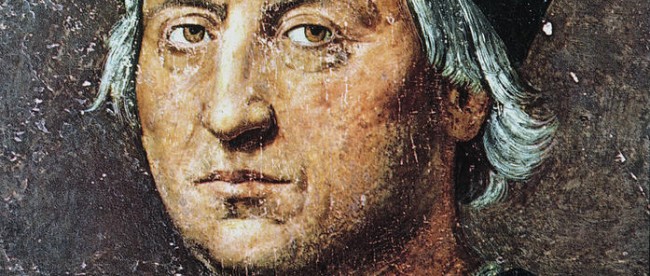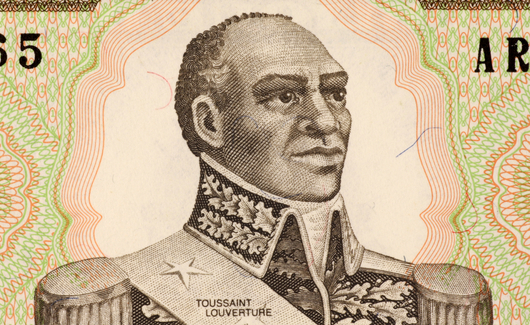Haitian History
 |
| Christopher Columbus Source: |
Haiti was discovered by Christopher Columbus in December 1492. It
was native to the Arawak tribe who knew the land as Haiti. The Spaniards called
it Hispaniola which means Little Spain (pbs.org). The Spanish claimed the whole
island but mostly settled in the East of it. The Spaniards would force the
natives to do hard labor until they were nearly extinct by the harsh conditions
& foreign disease.
 |
| Hispaniola Map (Portuguese) by Source: |
In the 16th century, the Spaniards shifted their focus
towards Mexico. Haiti also lacked resources which led to its neglect. By the 17th century, the French
took over the Western part of the island from Spain and named it, Saint
Domingue. The French caused the island to become rich due to sugar, coffee,
cotton, indigo, and cocoa exports (localhistories.org). since most of the natives
were wiped out, African slaves were imported to replace them and work on the
plantations.
Slave Revolution
Financially, Saint Domingue
was doing fine due to the productivity of the slaves. The conditions for the
slaves was harsh, brutal, and inhumane. This led to slaves fleeing their
plantations when the opportunity arose. Over time, the escaped slaves banded
together and called themselves the Maroons (pbs.org). they would hide in the
forests and mountains until their numbers grew. Once they became big enough,
they planned hit-and-runs, raids, and attacks. On the French colonists. The language
of creole was also formed by the slaves to communicate and support each other.
 |
| Toussaint Louverture Source: |
Toussaint L’Ouverture was the rebel leader of the slave rebels. He used
guerrilla warfare that quelled the French out of the island (pbs.org). he
governed Haiti from 1791 to 1802. He was forced to surrender to Napoleon when
he was surrounded by the French army. Napoleon promised he wouldn’t enslave
people, but broke that promise when he enslaved Martinique, which is a
neighboring country. Since Toussaint died a year later after his capture,
Jean-Jacques Dessalines took over command of his army. They would fight the
French again. Napoleon lost control of the island when he had to withdraw his
troops to fight the British. In 1804, the name of Saint Domigue was changed
back to Haiti which means “mountainous” (pbs.org). Haiti declared its
independence and Dessalines was the first leader to rule it. This made Haiti
the 1st free republic.
.jpg) |
| Translation- The Founder of the Independence of Haiti Source: |
Modern History After Independence
In 1806, Dessalines was assassinated. The Spanish would
take control of the eastern half of the island, that is now known as the
Dominican Republic (localhistories.org). Most of Haiti’s rule since has been
politically unstable. Many leaders were overthrown. The worst of the leaders
these dictators, Francois Duvalier (Papa Doc) in 1957 and his son Jean Claude
Duvalier (Baby Doc) in 1971. They brutally ruled Haiti with their private
paramilitary troops called the Tonton Macoutes or boogeymen which was heavily
influenced by voodoo (Pbs.org). Papa Doc and his son tainted the government
with corruption, drugs, violence, extortion, and embezzlement. The unrest and
desperation of the Haitian people caused the dictatorship to flee in 1986.
 |
| PapaDoc and TonTons Macoutes by |
Haiti’s economy was impacted by the their rule. Political
instability continued under the rule of President Aristide in 1990 (localhistories.org).
Due to corruption and violence, he was overthrown and exiled twice. Preval
became the next president and governed until 2011. The current president is now
Michel Martelly.
Earthquake of 2010
On January 12, 2010, a massive earthquake with a rating of
7.0 struck Haiti. More than 300,000 people were killed and 1.5 million were displaced. About 3000,000 were injured.
To this day economically and physically, Haiti is still trying to rebuild after
suffering the effects (cnn.com).
 |
| Presidential Palace Aftermath by |
Works Cited
"Haiti Earthquake Fast Facts." CNN. Cable News Network, n.d. Web. 15
Apr. 2016.
<http://www.cnn.com/2013/12/12/world/haiti-earthquake-fast-facts/>.
"A SHORT HISTORY OF HAITI." A Brief History of Haiti. N.p., n.d.
Web. 15 Apr. 2016. <http://www.localhistories.org/haiti.html>.
Toro, Natasha Del. "Haiti: Belo's Song of
Peace." PBS. PBS, n.d. Web. 15
Apr. 2016.
<http://www.pbs.org/frontlineworld/rough/2007/12/haiti_belos_sonlinks.html>.
No comments:
Post a Comment